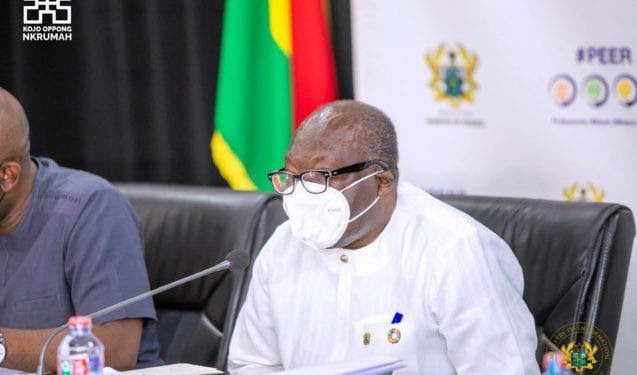E-Levy to strengthen Ghana’s revenue but uncertainty hangs on performance
According to a report by Databank Research, the electronic transaction levy is expected to strengthen the country’s revenue going forward but there is uncertainty regarding its performance.
The report said the uncertainty surrounding Parliamentary approval and potential behavioral changes in the use of the digital payment system pose a risk to the expected yield.
The projected revenue from the e-levy is GHS 6.96 billion representing 46% of the new revenue expectation of GHS 15 billion.
Against this back drop, Databank research said the extra revenue expectation and the total revenue target of GHS 100.5 billion are quite ambitious, therefore there is a risk of budget under performance in 2022.
However, it said stricter enforcement of the Ghana Integrated Financial Management Information System could strengthen the expenditure controls and support budget performance.
It forecast an overall budget deficit including bailout cost to range between 8.2% and 9.2% to GDP in relation to the size of the economy.
“The government expectedly signaled a faster reduction in the 2022 deficit. However, the underlying revenue assumptions appear doubtful. Given the steep climb in the debt-to-GDP ratio (78%) and the debt service-to-revenue ratio (73% as of September 2021), a faster compression in the budget deficit is inevitable”.
Also, it said a stronger push for revenue remains necessary to improve the debt service metrics.
Read: GOIL announces increment in fuel prices at the pump
“However, we believe the Treasury’s revenue growth target of 43% in 2022 appears quite bullish compared to the historical growth trend of 16% (2014 – 2020) and 18% (excluding 2020). Given that the Treasury has missed its revenue target by an average of 5.0% per year between 2016 and 2020, we view the target for 2022 as ambitious.”
Fast forward, persistent revenue shortfalls remain the bane of fiscal consolidation, adding, the government signaled a steady pace of reduction in the budget deficit to 9.4% of GDP in 2021 (vs 11.7% in 2020), excluding bailout costs.
Meanwhile, a former New Juaben South MP, Mark Assibey-Yeboah, has disputed government’s claims that the introduction of the Electronic Transaction Levy (E-levy) is the solution to generating more revenue to resuscitate the economy post-Covid-19.
According to the New Patriotic Party (NPP) politician, government should halt the E-levy bill’s passage and consider seeking financial support from the International Monetary Fund (IMF).
He stressed that so many exemptions could make it difficult for government to achieve its GHS 6.9 billion target.
“If I was the Finance Minister, I will be convincing the President that it is about time we went back [to IMF]. In my estimation, the maximum amount we can get from the E-levy is GHS 5 billion, which is less than a billion dollars.
“So I do not think that the E-levy is going to be a panacea to our revenue. Going to the IMF will ensure some stability, and above all, we are going to get some $3 billion,” he told Accra-based Citi FM.
The nation has been divided on the proposed E-levy since Finance Minister, Ken Ofori-Atta, announced it in November 2021.
The tax policy seeks to add a 1.75 per cent charge on every electronic transaction over GHS 100.
Government is, however, struggling to pass the controversial bill due to strong opposition from the National Democratic Congress (NDC).
The Minority argue that the imposition of the tax will heighten the sufferings of the ordinary Ghanaian.
However, government maintains that E-levy is the “homegrown” technique to restore the economy badly hit by the Covid-19 pandemic.








